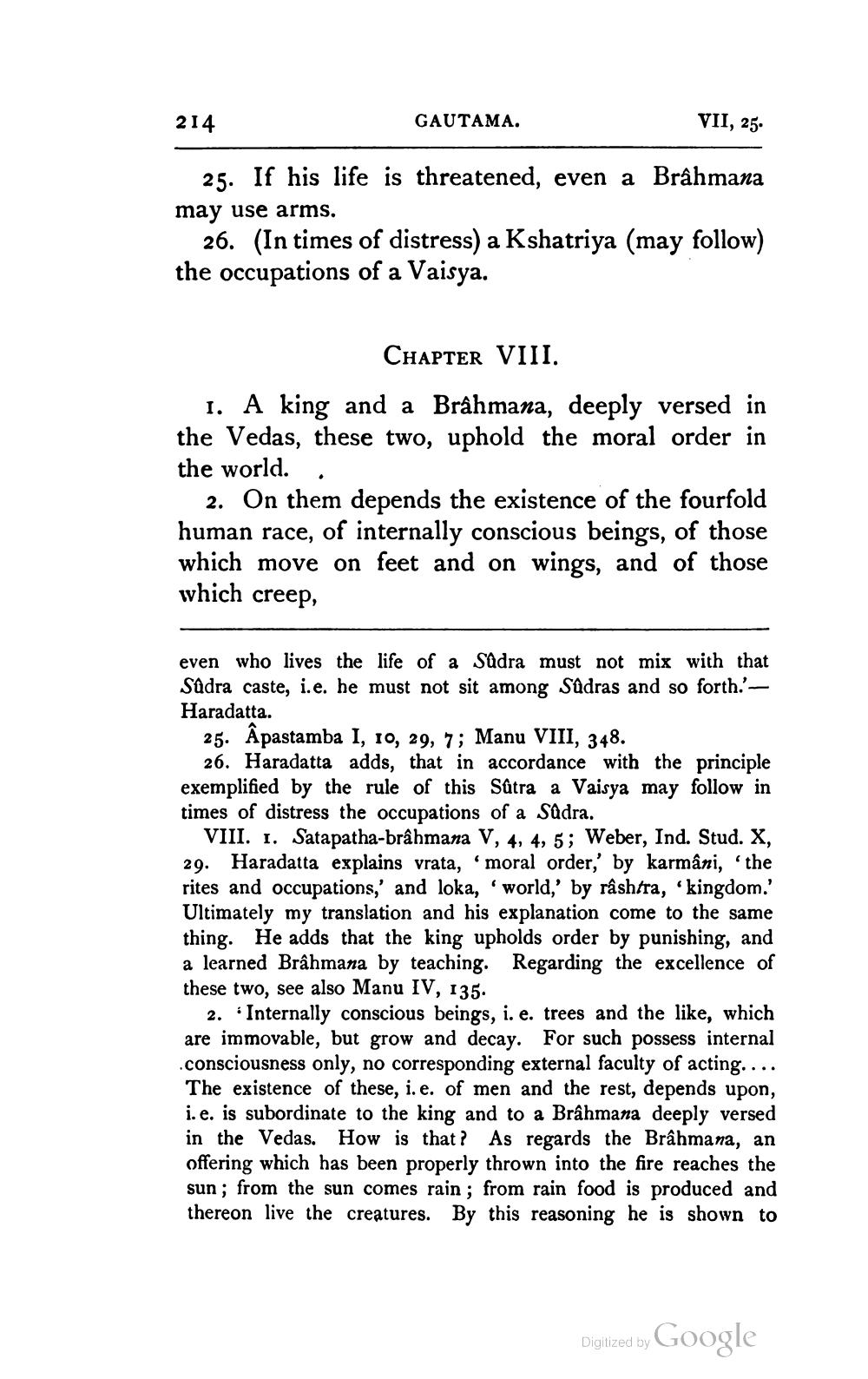________________
214
GAUTAMA.
VII, 25.
25. If his life is threatened, even a Brâhmana may use arms.
26. (In times of distress) a Kshatriya (may follow) the occupations of a Vaisya.
CHAPTER VIII. 1. A king and a Brâhmana, deeply versed in the Vedas, these two, uphold the moral order in the world..
2. On them depends the existence of the fourfold human race, of internally conscious beings, of those which move on feet and on wings, and of those which creep,
even who lives the life of a Sadra must not mix with that Sudra caste, i.e. he must not sit among Sudras and so forth.'— Haradatta.
25. Apastamba I, 10, 29, 7; Manu VIII, 348.
26. Haradatta adds, that in accordance with the principle exemplified by the rule of this Satra a Vaisya may follow in times of distress the occupations of a Sadra.
VIII. I. Satapatha-brâhmana V, 4, 4, 5; Weber, Ind. Stud. X, 29. Haradatta explains vrata, moral order,' by karmâni, 'the rites and occupations, and loka, 'world,' by râshtra, kingdom.' Ultimately my translation and his explanation come to the same thing. He adds that the king upholds order by punishing, and a learned Brâhmana by teaching. Regarding the excellence of these two, see also Manu IV, 135.
2. Internally conscious beings, i.e. trees and the like, which are immovable, but grow and decay. For such possess internal .consciousness only, no corresponding external faculty of acting....
The existence of these, i.e. of men and the rest, depends upon, i.e. is subordinate to the king and to a Brâhmana deeply versed in the Vedas. How is that? As regards the Brâhmana, an offering which has been properly thrown into the fire reaches the sun; from the sun comes rain; from rain food is produced and thereon live the creatures. By this reasoning he is shown to
Digjized by Google




